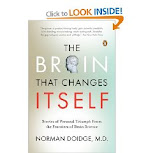Continuing my blinterviews series with a wonderful conversation I had with an equally wonderful young lady who knows more about people than anyone I know.
Adina has been head of operations with Synovate, one of Romania’s top research companies for a while now and she has seen her share of focus groups, in depth interview and statistics. So I asked her out to drill her about the new Romanian men/woman, the Romanian 2.0 so to say, but not from an exclusively new media point of view. After some brain picking this is what I found out.
Research is like dynamite. Use it well and it makes paths towards great new things. Use it wrongly and it blows up in your face.Adina thinks that research is a means of getting relevant information from your target audience. But there are only a handful of people that understand research should be used as such – relevant information on which to base your subsequent decisions. She says that most often research is used for personal security reasons or the so-called “ass covering objective”. This, she says, is not specifically true for Romania but rather a universal thing because few dare to use research constructively. “It is now what you know but what you do with what you know that makes the difference” she told me, and she calls this actionable research, research that can be used to achieve useful conclusions.
There is no such thing as creative research. Only creative interpretationAdina dismisses the idea that you can mess with research techniques. She believes that methodologies should be applied to the letter, and that creativity comes after you have the raw data – in portraying your results in an interesting manner that would make them more understandable to the client. She makes an interesting simile: “research is like making a stew” – to get the right stew, you need to have some basic ingredients. You can get creative on the final touches but to get stew you need to use the basic stuff anyway.
Romanians are essentially dichotomous in their attitude towards everything.The quintessential Romanian is an open-closed type of personality. On the one hand he would like to be seen as the bon viveur, the jovial and open-minded fellow but on the other he is very insecure about what he does and what he is like. There is a need for opening and for integration but this is toned down by a fear of almost anything and an essential distrust for anything other than the highest authority. [My note here: this may explain why we get a lot of Romanians reminiscing about the communist era and saying that they had it better then; the entrepreneurial spirit of capitalism is upsetting to them as much as they would like to adhere to it]. Adina quotes a famous Romanian dramatist to describe what Romanians are like, they want to change everything but alter nothing. They are impatient for a new thing but, in a true Balkan spirit, also have an innate need for security [my note here: this may also be reflected in how often we tend to change political regimes but how often we tend to go back to what we changed because we cannot commit to change on a longer term]. Online, says Adina, this type of mentality is obvious in the blog/comment phenomenon, where everyone has something to say but a lot of the people speaking prefer to remain anonymous.
EU accession is changing things, slowly Adina thinks that EU accession is slowly changing the way people act. It seems that there was a national tension that disappeared after we got the “confirmation” that we are acceptable to the rest of Europe. So now, Romanians try less, but in an attitude sense, meaning that they have a tendency to be more confident and assert their confidence when they speak about the future.
Trends in attitudesI ask her about trends and she nods her head, she has noticed at least two very relevant ones.
One is about hobbies: more and more Romanians talk about hobbies and how they would like to get one. And they mean real hobbies, not just going out for a barbecue. They also explain this by saying how having a hobby sometimes gives you a reason to exist after your job. She puts this down to some recent happenings in our lives like opening of consumer credit, traveling at a smaller cost [low cost carriers], EU accession again.
Two, interaction with advertising. Adina says that people watch TV ads less and less or that they SEE TV ads less and less in the sense of internalizing and remembering a message. Three years ago, she says, people would be able to enumerate the TV ads they liked best and retell them in detail. Today they have vague impression about what they saw and they tend to mention other communication means like POS materials or non-TV communication.
OnlineShe tells me that she has been noticing more and more adults getting into messenger and Skype because they have relatives working abroad. [my note: for them internet is a tool not a place for leisure]. There is something about online that connects people and keeps them in tight communities beyond space and time and this is not only valid about youngsters who naturally ‘herd’ together.
For youngsters she mentions that there is a secondary dimension which allows them to bond with each other online without becoming too exposed. They feel secure behind the computer screen and they can act more naturally there than they would in public. Of course she thinks it’s a pity we are losing the charm of face-to-face conversations but since lots of us see the world around more like a jungle than a café this is natural.

























